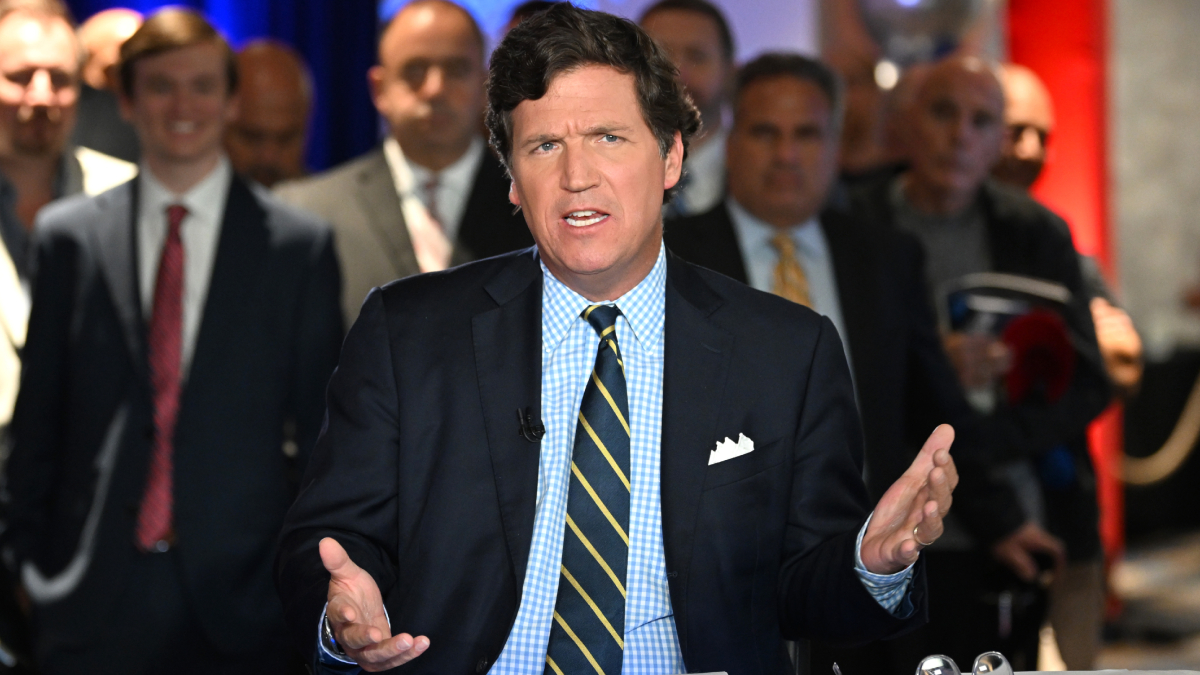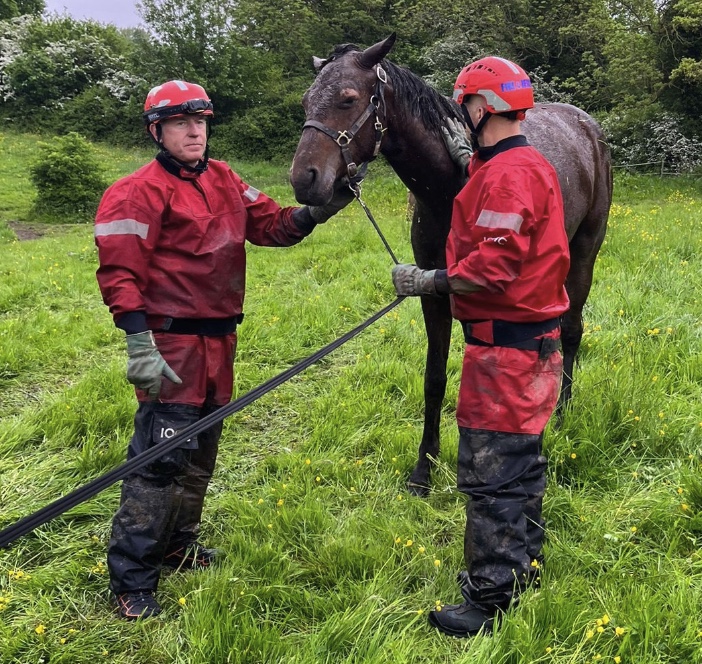Ray Epps V. Fox News: Analysis Of The January 6th Defamation Case

Table of Contents
Ray Epps, a 60-year-old Arizona man, found himself thrust into the national spotlight following the January 6th insurrection. Footage circulating online showed him seemingly encouraging others to march towards the Capitol building. This footage, however, was selectively used by certain media outlets to paint Epps as a federal agent provocateur, fueling conspiracy theories about the events of that day. This is the crux of the defamation lawsuit he filed against Fox News, alleging that their reporting falsely portrayed him as a government operative involved in instigating violence. The central accusations allege that Fox News knowingly spread false and defamatory information, damaging Epps’ reputation and causing him significant distress. Fox News, in turn, maintains that their reporting was fair comment and protected under the First Amendment.
The Allegations of Defamation: What Did Fox News Report?
Epps' lawsuit centers on several Fox News reports and segments that he argues falsely depicted him as an FBI informant orchestrating the January 6th events. These reports often featured commentary from hosts and guests suggesting Epps was responsible for inciting the riot, even though investigations have found no evidence supporting these claims.
- Specific examples: The lawsuit points to specific segments and statements made by Fox News personalities, quoting their commentary to highlight the allegedly defamatory claims. These quotes often linked Epps to the events leading up to the breach of the Capitol, suggesting his actions were deliberate acts of instigation.
- Accusations against Epps: The accusations consistently portrayed Epps as a federal agent, a plant, or otherwise a key figure in coordinating the events of January 6th. The reporting heavily implied that he was secretly directing protestors to engage in unlawful activity.
- Impact on Epps' life: The lawsuit details the significant negative impact this reporting had on Epps' life, including harassment, threats, and the destruction of his personal and professional reputation. He claims this led to significant emotional distress and financial loss.
Epps' Claims and Evidence Presented
Epps' legal team is countering Fox News' claims with a multifaceted strategy, presenting evidence aiming to disprove the portrayal of him as an instigator. This evidence includes:
- Security footage analysis: The defense has analyzed security camera footage to demonstrate Epps' actions, arguing that his behavior does not support the accusations of him inciting violence. Instead, they suggest he was merely present and possibly attempting to de-escalate tensions.
- Witness testimony: Epps’ legal team plans to present testimony from witnesses who were present on January 6th, offering their account of Epps' actions and refuting the narrative presented by Fox News.
- Legal Precedents: The case relies on established defamation law, particularly focusing on the elements of falsity, publication, damage to reputation, and negligence or malice on the part of Fox News.
- Expert Witnesses: Experts in media analysis and investigative journalism will likely be called upon to evaluate the Fox News reports and assess whether they met journalistic standards of accuracy and fairness.
Fox News' Defense Strategy and Arguments
Fox News' defense strategy is likely to hinge on several key arguments:
- Freedom of Speech: They will likely argue that their reporting is protected under the First Amendment’s guarantee of freedom of speech, even if some aspects of their reporting are later found to be inaccurate.
- Good Faith and Reasonable Belief: Fox News might attempt to demonstrate that their reporting was based on a good-faith belief in the information they received, even if that information ultimately proved to be false.
- Opinion vs. Fact: A key argument will likely center around the distinction between opinion and factual reporting. Fox News might argue that some statements were opinion-based commentary, not intended as factual assertions.
- Absence of Malice: To avoid liability under defamation law, Fox News will likely have to prove they did not act with actual malice—meaning they did not know the information was false or acted with reckless disregard for the truth.
The Broader Context: January 6th and Media Responsibility
The Ray Epps case transcends a simple defamation lawsuit; it raises critical questions about media responsibility in covering politically charged events:
- Shaping Public Perception: The case highlights how media coverage, particularly the spread of misinformation and disinformation, can profoundly shape public perception of significant events like the January 6th attack.
- Impact on Public Trust: The dissemination of false narratives erodes public trust in institutions and democratic processes. The case underscores the potential damage caused by irresponsible reporting.
- Legal and Ethical Responsibilities: This case forces a renewed examination of the legal and ethical responsibilities of news organizations in reporting on sensitive political matters. It prompts discussions about fact-checking, sourcing, and the potential consequences of broadcasting unsubstantiated claims.
- Future Media Coverage: The outcome of the Ray Epps v. Fox News case will undoubtedly have implications for how news organizations approach covering politically sensitive events in the future, potentially encouraging more cautious and responsible reporting.
Conclusion: Understanding the Ray Epps v. Fox News Case and Its Implications
The Ray Epps v. Fox News case presents a critical examination of media responsibility in the context of the January 6th insurrection. Epps claims Fox News knowingly spread false narratives that damaged his reputation, while Fox News maintains its reporting was protected speech. The potential legal outcomes will significantly impact defamation law and set precedents for future media coverage of highly sensitive events. The case serves as a stark reminder of the power of media narratives to shape public perception and the importance of responsible journalism in upholding democratic principles. Stay informed about the developments in the Ray Epps v. Fox News case and engage in critical media consumption to combat misinformation surrounding the January 6th Capitol attack. Further research into January 6th related defamation cases is crucial for a complete understanding of this pivotal moment in American history.

Featured Posts
-
 M56 Motorway Major Delays Near Cheshire Deeside Border Due To Accident
May 24, 2025
M56 Motorway Major Delays Near Cheshire Deeside Border Due To Accident
May 24, 2025 -
 Why Dylan Dreyer Almost Missed Her Today Show Hosting Gig
May 24, 2025
Why Dylan Dreyer Almost Missed Her Today Show Hosting Gig
May 24, 2025 -
 Banco Master Acquired By Brb A New Contender Emerges In The Brazilian Banking Market
May 24, 2025
Banco Master Acquired By Brb A New Contender Emerges In The Brazilian Banking Market
May 24, 2025 -
 Bangkok Post Ferrari Opens Flagship Facility
May 24, 2025
Bangkok Post Ferrari Opens Flagship Facility
May 24, 2025 -
 Escape To The Country Top Locations For A Tranquil Life
May 24, 2025
Escape To The Country Top Locations For A Tranquil Life
May 24, 2025
Latest Posts
-
 Pobeda Aleksandrovoy Nad Samsonovoy Na Turnire V Shtutgarte
May 24, 2025
Pobeda Aleksandrovoy Nad Samsonovoy Na Turnire V Shtutgarte
May 24, 2025 -
 Pryamaya Translyatsiya Rybakina Protiv Eks Tretey Raketki Mira V Turnire Na 4 Milliarda
May 24, 2025
Pryamaya Translyatsiya Rybakina Protiv Eks Tretey Raketki Mira V Turnire Na 4 Milliarda
May 24, 2025 -
 Shtutgart Aleksandrova Obygrala Samsonovu V Startovom Matche
May 24, 2025
Shtutgart Aleksandrova Obygrala Samsonovu V Startovom Matche
May 24, 2025 -
 Aleksandrova Vybila Samsonovu V Pervom Raunde Turnira V Shtutgarte
May 24, 2025
Aleksandrova Vybila Samsonovu V Pervom Raunde Turnira V Shtutgarte
May 24, 2025 -
 Elena Rybakina Ne V Optimalnoy Forme Chto Dalshe
May 24, 2025
Elena Rybakina Ne V Optimalnoy Forme Chto Dalshe
May 24, 2025
